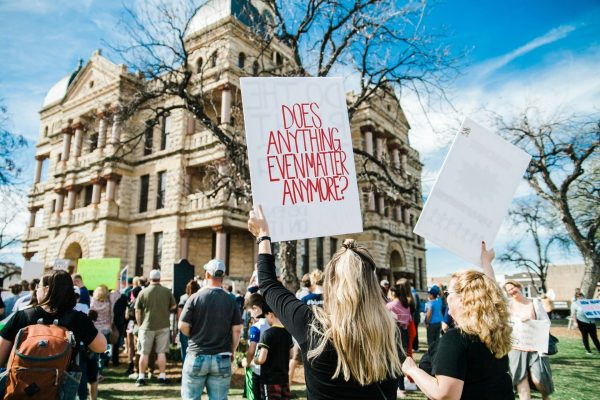Daylight Savings: No Going Back
March 23, 2022
On March 15, the Sunshine Protection Act was passed by the U.S. Senate which would end the annual changing of clocks that happen twice a year, making daylight savings time permanent. According to Reuters, the bill needs to be passed by the House of Representatives before it can be sent to President Joe Biden and be signed into effect starting in 2023.
Sen. Marco Rubio, who is one of the sponsors of the bill, said he along with other supporters decided that Nov. 2023 would be the best time for the Sunshine Protection Act to be put in place after taking advice from airlines and broadcasters into consideration.
“The loss of that one hour of sleep seems to impact us for days afterward,” Representative Frank Pallone said as the chairman the House Energy and Commerce committee at a hearing on March 9, 2022. “It also can cause havoc on the sleeping patterns of our kids and our pets.”
The National Association of Convenience Stores provided an opposing perspective by telling Congress, “We should not have kids going to school in the dark.”
Some states have proposed keeping the time the same all year round since 2015 as long as their surrounding states make this decision as well. As of this year, about 30 states have introduced legislation to end the clock changing.
This includes Connecticut, which had a similar bill proposed this year, but wasn’t accepted according to Patch. This was one of several attempts to keep Daylight Savings time in the state by State Rep. Kurt Vail, who submitted the bill repeatedly for the past six years according to Hearst Connecticut Media.
The U.S. first adopted Daylight Savings in 1918, and since the 1960s, it has been in place for most of the country. Despite how long this time process has been around for, Pallone said at the committee hearing that a 2019 poll revealed that 71% of Americans don’t want to turn their clocks back and forward an hour every year.
As a student here at Central who takes morning and night classes, I think this is good and bad. It would suck to have to walk to morning classes in the dark, but at the same time, it would be amazing to walk to late-night classes without it being pitch black outside. I’m more concerned about my safety on campus at night rather than in the morning.
I think this time change can change campus a lot, meaning there’s a chance there could be more outdoor events on campus, and it would be light out longer during the football season. This possibly could make the campus more social and vibrant.
However, I worry that this permanent time change will feel weird and will throw off people’s sleep schedules more than it does now from the most recent change. I wonder how this will affect their jobs and what will become of adult nightlife.
With this not being a bill of importance, it could take a while for this bill to be passed, but all of us will find a way to make the change work. Until then, it’s time to continue with our daily lives and wait to see if the House of Representatives will approve the bill. This might be the ending of a time change we’ve had for several decades in the country.







